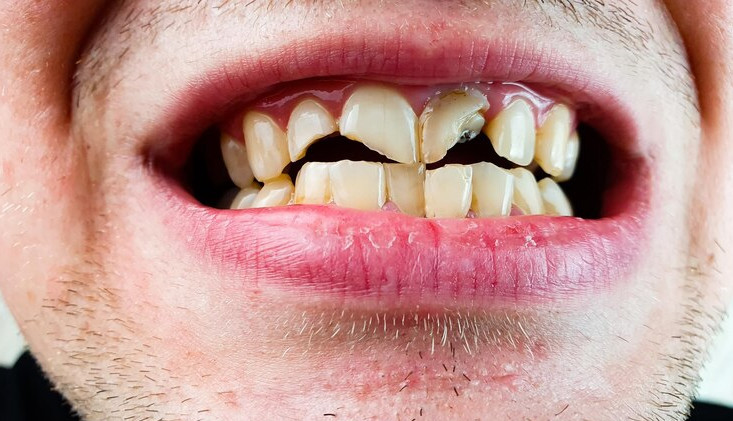At Palmetto Family and Cosmetic Dentistry, we understand that dental health is a cornerstone of overall well-being and happiness. Among the various concerns that patients face, impacted teeth are a significant issue affecting individuals of any age.
By providing in-depth information and addressing common concerns, we aim to empower you with knowledge and reassure you that solutions are within reach. We ensure that impacted teeth don’t stand in the way of your oral health and confidence.
Impacted teeth occur when a tooth fails to emerge fully into its expected position in the mouth, usually because of a lack of space in the jaw or obstruction by other teeth. Understanding impacted teeth is crucial for maintaining dental health, as they can lead to complications if left untreated. Our commitment is to help you navigate this condition with comprehensive care and expertise.
Types of Impacted Teeth
Impacted teeth can vary, with the most common being:
- Wisdom Teeth (Third Molars): Frequently affected due to limited space in the back of the jaw.
- Canines (Cuspids) are essential for biting and cutting food, and their impaction can significantly affect dental function.
- Premolars (Bicuspids): Less commonly impacted but can cause issues when they do occur.
Causes of Tooth Impaction
Several factors contribute to tooth impaction, including:
- Lack of Space in the Jaw: The most common reason, especially in smaller jaws.
- Overcrowding of Teeth: Leaves little room for all teeth to emerge properly.
- Unusual Growth Patterns: Teeth may angle incorrectly and become trapped.
Symptoms of Impacted Teeth
Impacted teeth can present with the following:
- Pain and Tenderness in the Gums: A sign that a tooth is struggling to emerge.
- Swelling Around the Jaw: Caused by inflammation or infection from an impacted tooth.
- Difficulties in Opening the Mouth: Especially if the impaction causes significant swelling or infection.
Complications Associated with Impacted Teeth
If not addressed, impacted teeth can lead to:
- Infection or Abscess: This occurs when harmful bacteria infiltrate the space surrounding an impacted tooth, resulting in pain and swelling and potentially leading to further complications if left untreated.
- Damage to Adjacent Teeth: The impacted tooth exerts pressure on neighboring teeth, potentially causing misalignment, enamel erosion, or even fractures, which may require additional dental interventions.
- Cyst Development: Cysts have the potential to form around the impacted tooth, posing a risk of jawbone damage and requiring surgical intervention to prevent further oral health issues.
Diagnosis and Detection
Early detection is key and includes:
- Dental Examinations: Regular dental check-ups are essential for maintaining oral health. These examinations help identify potential impactions early on and play a crucial role in preventing serious dental issues.
- X-rays: X-rays are a valuable diagnostic tool used in dentistry to visualize areas beneath the gums that are not visible during a regular examination. They are especially crucial for identifying hidden impactions and determining the best course of treatment.
- 3D Imaging: Advanced 3D imaging technology provides a detailed and comprehensive view of the jaw and teeth. This imaging technique aids in accurate diagnosis by allowing dentists to assess the structure and alignment of teeth more effectively than traditional imaging methods.
Treatment Options
Treatment varies based on the individual case and may involve:
- Monitoring: In cases where impacted teeth are observed, a period of monitoring may be recommended by the dental professional. This approach involves regular check-ups to track the progress and determine if immediate intervention is necessary.
- Surgical Removal: Wisdom and severely impacted teeth often require surgical removal to prevent potential complications such as infection or misalignment. The procedure is typically performed under local or general anesthesia by an oral surgeon.
- Alternative Treatments and Interventions: Orthodontic solutions, such as braces or aligners, can sometimes be utilized to gradually create space for impacted teeth. These treatments aim to align the existing teeth properly while making room for impacted teeth to erupt naturally.
Aftercare and Recovery
Following treatment, proper aftercare is vital:
- Post-surgical Care Instructions: These instructions are crucial for promoting adequate healing, reducing the risk of infection, and ensuring a smooth recovery process.
- Medications for Pain and Infection Control: Proper use of medications prescribed for pain management and infection control is essential to alleviate discomfort, prevent complications, and support the healing process effectively.
- Recommended Dietary Adjustments: Following recommended dietary adjustments, such as consuming soft foods and practicing careful eating habits, can play a significant role in aiding recovery, promoting healing, and restoring strength after surgery.
Prevention Strategies
Preventing complications from impacted teeth involves:
- Regular Dental Check-ups: Essential for spotting early signs of impaction.
- Early Detection Practices: Such as X-rays during routine dental visits.
- Importance of Dental Hygiene: Regular brushing and flossing can prevent conditions that exacerbate impaction risks.
FAQs
Q: How do I know if I have an impacted tooth?
A: Symptoms of an impacted tooth may include pain or tenderness in the gums and jaw, difficulty opening your mouth, and sometimes swelling or a sensation of pressure in the affected area. It’s important to consult your dentist for an evaluation if you experience these symptoms.
Q: Are any long-term risks associated with impacted teeth if left untreated?
A: Yes, untreated, impacted teeth can lead to various complications, including infection, damage to adjacent teeth, cysts or tumors, and misalignment of the teeth and jaw. Regular dental exams can help detect and address impactions early.
Q: Is surgery always necessary for impacted teeth?
A: Not always. The treatment approach depends on the tooth’s position, the level of impaction, and the presence of symptoms or complications. Alternatively, alternative treatments such as orthodontic interventions may be viable options.
Q: Can impacted teeth be prevented?
A: While preventing an impaction due to genetics and jaw size is challenging, maintaining good dental hygiene and attending regular check-ups can help identify potential issues early, allowing for timely interventions.
Q: How long is the recovery period after surgery for an impacted tooth?
A: Recovery times can vary depending on the complexity of the surgery and individual healing rates. Generally, initial healing occurs within the first one to two weeks, with complete recovery and bone healing taking a few months. Follow your surgeon’s post-operative care instructions closely to support a smooth recovery.
Embrace Pain-Free Smiles: Find Relief for Impacted Teeth at Palmetto Family and Cosmetic Dentistry
Struggling with impacted teeth? Experience the expertise of our expert dentists in providing gentle and effective solutions for impacted teeth. Our compassionate team is dedicated to restoring your comfort and oral health.
Ready to alleviate discomfort and restore your smile? Contact us today to schedule your consultation and take the first step towards freedom from impacted teeth.

